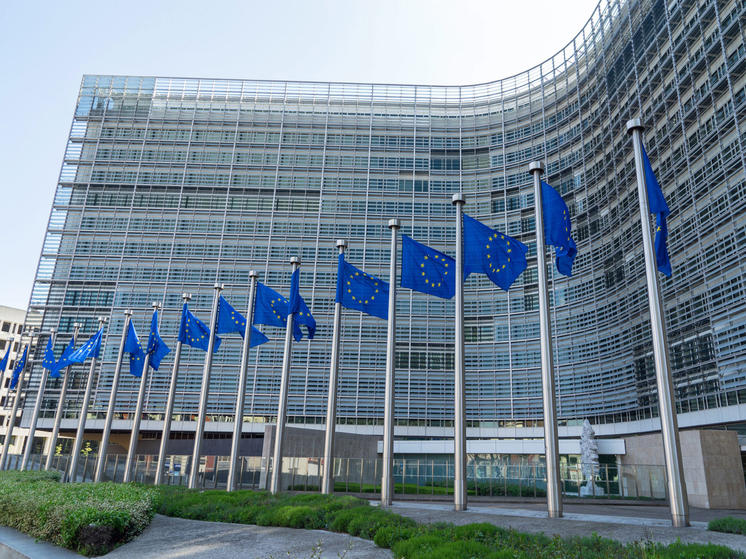Economist Maslennikov: “Any negotiation process will not be complete without this issue.”
In the sluggish story with the assets of the Russian Central Bank frozen by the West, a new turn is planned. The European Union is considering blocking these funds in the amount of €260 billion “for an indefinite period with an open date,” writes the Financial Times. Currently, the sanctions decision is renewed every six months, and this requires the approval of all 27 EU member states. Since the measure is purely political in nature, there is definitely no point in looking for financial logic here.

The draft document of the European Commission, which will be considered by the ambassadors of all 27 EU countries, contains two options for action. One involves an indefinite freeze of Russian assets, the decision of which will be regularly reviewed. In the second case, we are talking about extending restrictions to 18, 24 or 36 months. The idea is related to the intention to provide partners with a “high degree of predictability” regarding plans to provide $50 billion in loans to Kyiv by the end of 2024 using profits from frozen assets.
It’s easy to guess what kind of partners (or rather, partner) they are – the United States. According to the Financial Times, Washington fears that Brussels may at some point not extend the regime of sanctions against Russian funds and securities worth €260 billion. In principle, there is reason for concern — this is, at a minimum, the uncompromising position of Hungary , often running counter to the main line of official Brussels.
According to Bloomberg sources, the agreement reached at the June G7 summit stipulates that Europe and America will provide loans to Ukraine of $20-22, and the remaining $10 billion will be jointly covered by the UK, Canada and Japan. These loans will presumably be repaid using future profits from the frozen assets of the Central Bank, estimated at between €3 billion ($3.3 billion) and €5 billion per year.
“It is extremely difficult to make forecasts in this case, since the events are exclusively geopolitical in nature and have nothing in common with the economy,” says Nikita Maslennikov, leading expert at the Center for Political Technologies. — What is happening is incomprehensible to the participants themselves; it is only clear that they have to pretend to be some kind of activity — as in official competitions in single figure skating, where until 1990 there was a mandatory program. These are the “figures” they list on the current agenda. At the same time, everyone is playing their own game: Hungarian Prime Minister Orban, whose country currently presides over the EU, made a peacekeeping voyage to Kyiv and Moscow, Ukrainian Foreign Minister Kuleba flew to Beijing, the European Union came up with a new configuration for freezing Russian assets.”
On the one hand, the MK source reasons, the news flow about options for a peaceful settlement of the conflict in Ukraine has increased, on the other hand, Biden's withdrawal from the US election race has clearly not reduced the overall geopolitical tension and uncertainty. Until Kamala Harris receives the mandate of the Democratic Party's presidential candidate, until elections are held in America, until the contours of peace negotiations on Ukraine are determined, the Europeans will most likely not make any new cardinal decision on the assets of the Central Bank. In addition, Maslennikov reminds us, the G7 countries have unanimously demanded that Moscow compensate Kiev for the damage caused by military actions in the amount of $ 486 billion, accordingly, Russia cannot relax: any negotiation process will not do without discussing this issue. As a result, Brussels may limit itself for now to a certain declarative statement: they say, we will constantly keep Russian assets blocked and monitor developments.
«Even if we assume that one of the G7 countries at a certain point does not vote to extend the «freeze», the overall situation will not change in any way,» notes BitRiver financial analyst Vladislav Antonov. «The position of the Western world in this case is unshakable: we are talking about a purely political decision, a manipulation mechanism. There are no other signals yet. All these levers are very far from economic in nature, so there is no need to look for financial meaning here.»


